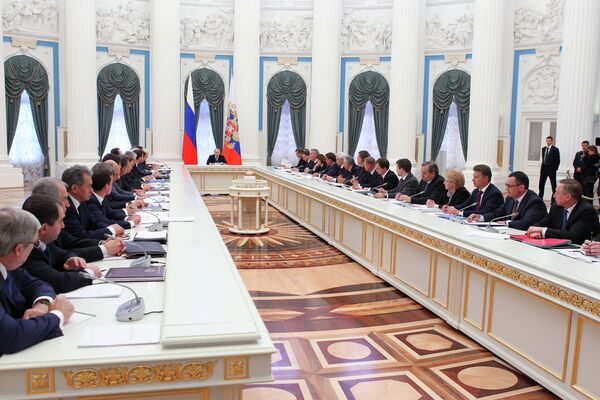MOSCOW, May 7 (RIA Novosti) – Russian President Vladimir Putin signed into law Tuesday a bill that bans scores of Russian officials from keping their money in foreign banks, but allows them to own property abroad.
The law also prohibits officials from owning financial instruments, including derivatives.
The ban covers members of the federal Cabinet and regional governments, parliamentary speakers and committee heads, federal judges, state corporation CEOs, regional governors, heads of municipalities and a handful of other senior officials, including the prosecutor general, the head of the Investigative Committee and the president himself.
The ban includes officials’ spouses and underage children, but not other relatives.
Officials currently owing assets abroad have three months to get rid of them, which can be done by placing them into blind trusts.
State servants who fail to comply risk sacking, but no further punishment.
The original draft filed by Putin with parliament in February also prohibited officials from owing real estate outside Russia, but this provision was later dropped.
The Kremlin calls the ban a move in its ongoing anti-corruption campaign, which has seen two ex-government ministers implicated in separate corruption probes and several lawmakers resign in recent months over allegations of undeclared real estate or illegal business activity.
Russia ranked 133rd of 174 countries in Transparency International’s Corruption Perceptions Index in 2012.
Opposition lawmakers said the foreign accounts ban was an attempt to mitigate Russia’s refusal to ratify article 20 of the UN Convention against Corruption, which proposes punishments for officials whose assets exceed their income without a reasonable explanation.
Political pundits also linked the ban to Putin’s attempted “nationalization of the elites” aimed at strengthening his control over the country’s “power vertical.” Many Russian officials are believed to keep assets outside the country to keep them out of the Kremlin’s reach.




